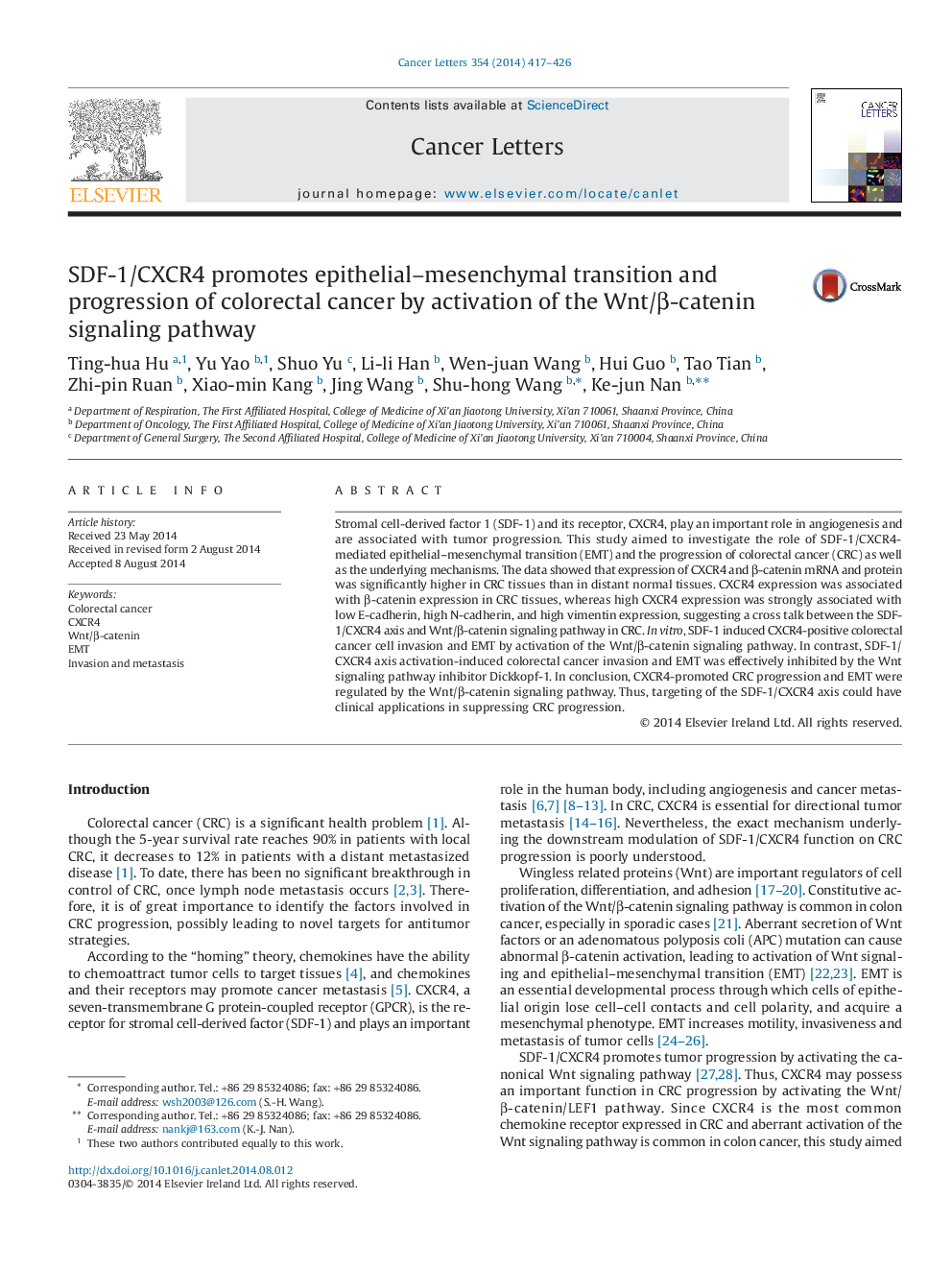| Article ID | Journal | Published Year | Pages | File Type |
|---|---|---|---|---|
| 2112601 | Cancer Letters | 2014 | 10 Pages |
•SDF-1/CXCR4 promotes colorectal cancer EMT and progression.•CXCR4-promoted CRC EMT and progression via the Wnt/β-catenin signaling pathway.•CXCR4-promoted CRC EMT and progression is inhibited by a Wnt inhibitor Dickkopf-1.
Stromal cell-derived factor 1 (SDF-1) and its receptor, CXCR4, play an important role in angiogenesis and are associated with tumor progression. This study aimed to investigate the role of SDF-1/CXCR4-mediated epithelial–mesenchymal transition (EMT) and the progression of colorectal cancer (CRC) as well as the underlying mechanisms. The data showed that expression of CXCR4 and β-catenin mRNA and protein was significantly higher in CRC tissues than in distant normal tissues. CXCR4 expression was associated with β-catenin expression in CRC tissues, whereas high CXCR4 expression was strongly associated with low E-cadherin, high N-cadherin, and high vimentin expression, suggesting a cross talk between the SDF-1/CXCR4 axis and Wnt/β-catenin signaling pathway in CRC. In vitro, SDF-1 induced CXCR4-positive colorectal cancer cell invasion and EMT by activation of the Wnt/β-catenin signaling pathway. In contrast, SDF-1/CXCR4 axis activation-induced colorectal cancer invasion and EMT was effectively inhibited by the Wnt signaling pathway inhibitor Dickkopf-1. In conclusion, CXCR4-promoted CRC progression and EMT were regulated by the Wnt/β-catenin signaling pathway. Thus, targeting of the SDF-1/CXCR4 axis could have clinical applications in suppressing CRC progression.
